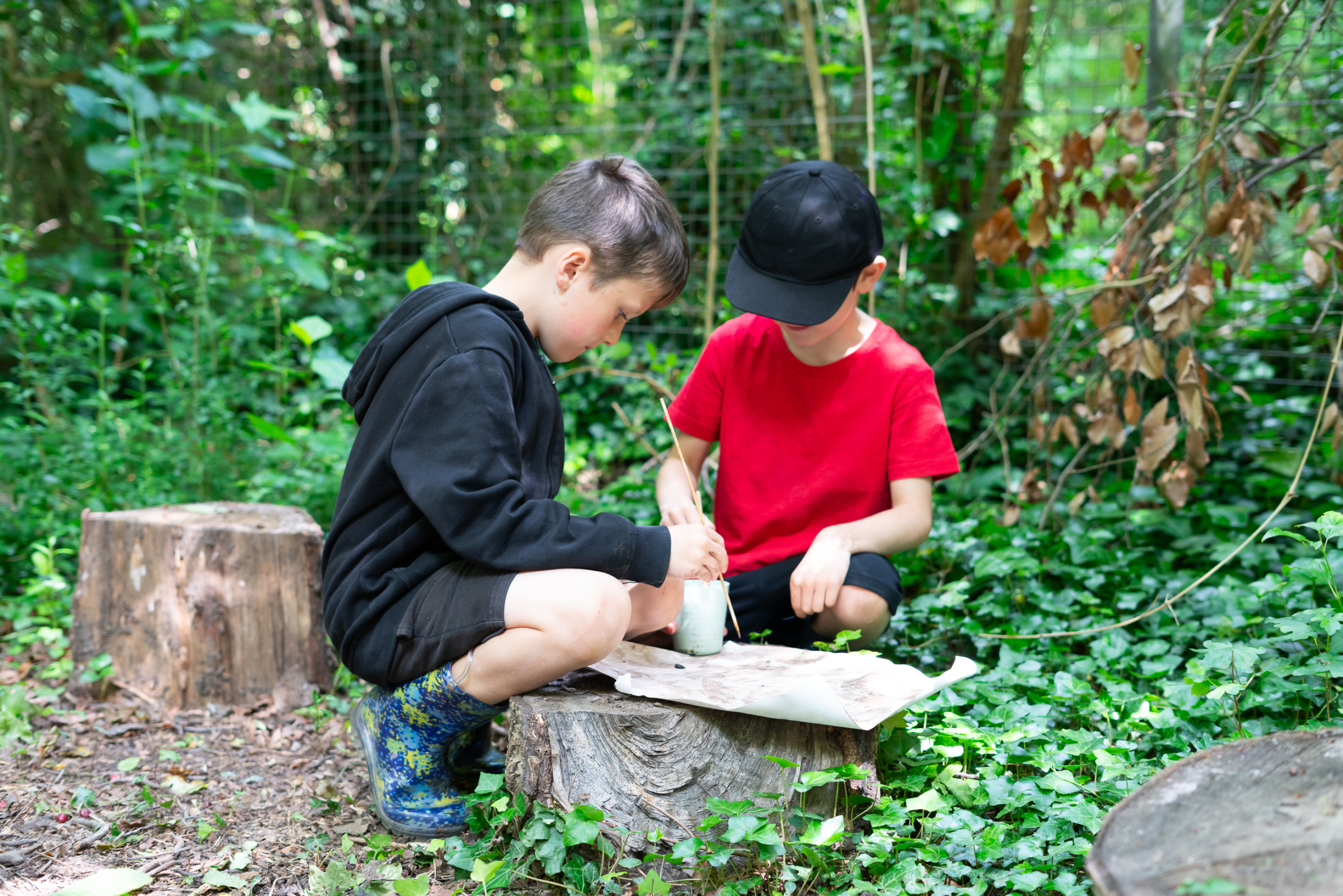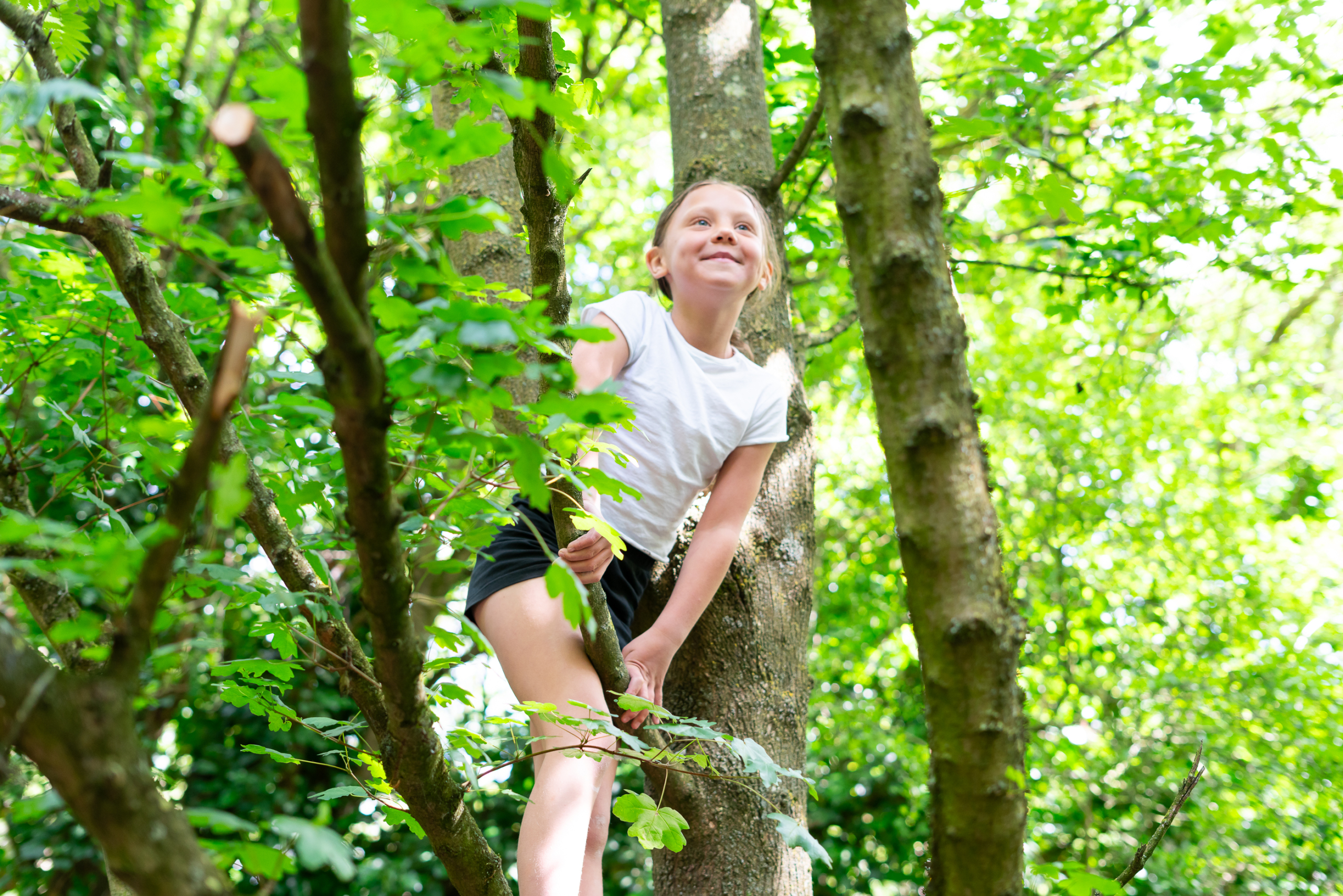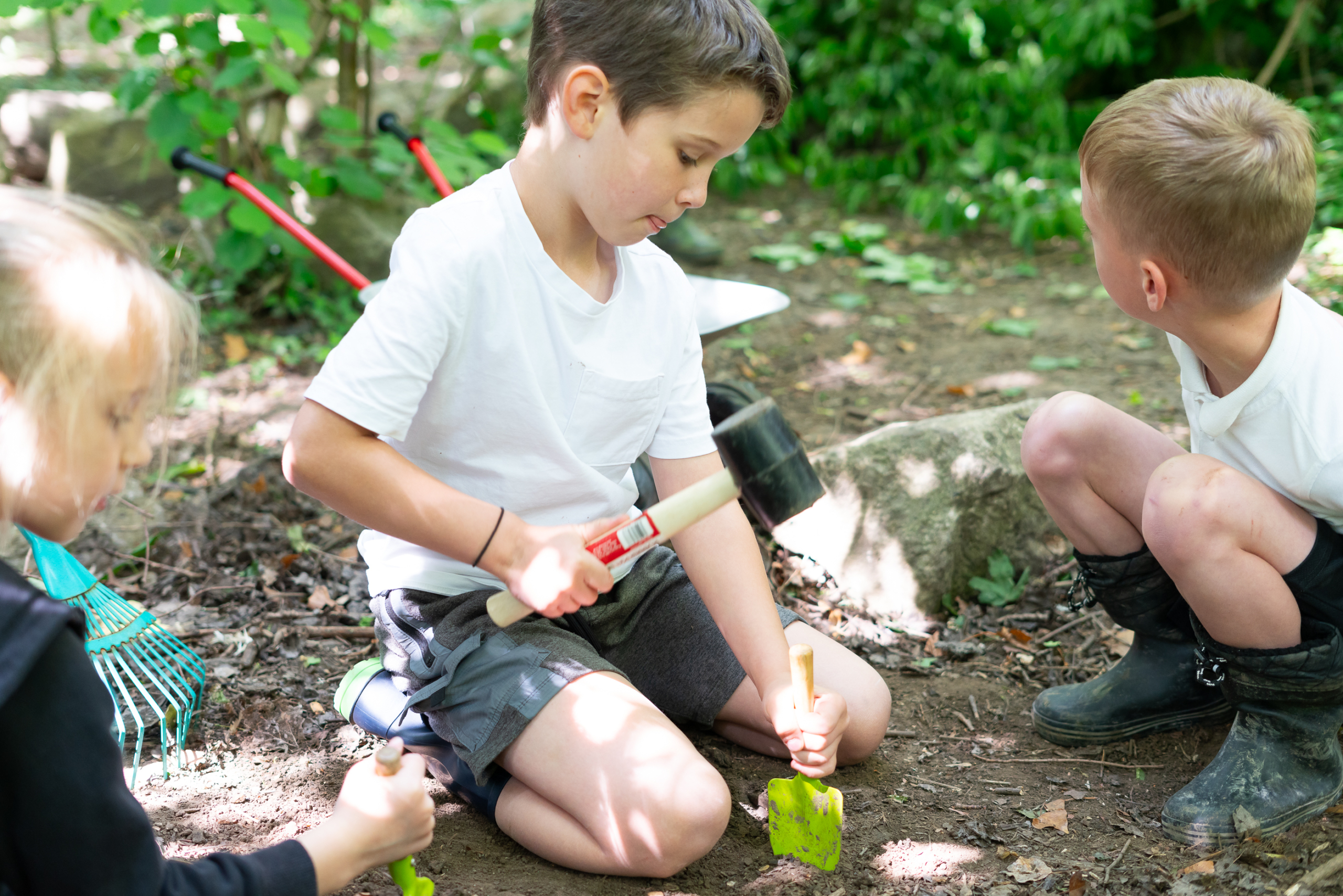Forest School Subject Leader: Mrs C Coleman and Miss E Donovan
Halling Primary School integrates Forest School into its curriculum to foster holistic child development through immersive outdoor learning experiences. Here’s an overview of the program’s intent, implementation, and impact:
Intent
-
Foster holistic development – We support children’s physical, emotional, social, and cognitive growth through nature-based learning. We empower children through a child-led approach that emphasises play and exploration.
-
Build confidence and self-esteem – We incorporate Kagan within our sessions to support children with building relationships, cooperation, teamwork and collaboration. We value all members of our school community and recognise that following the Forest School ethos supports children who may struggle in traditional classroom environments.
-
Encourage risk-taking and independence – Our children assess and take managed risks in safe outdoor settings. Problem-solving and teamwork are supported through both planned and independent activities.
-
Promote curiosity and creativity – We provide a natural environment that inspires imaginative play and exploration.
-
Encourage open-ended exploration where children can ask questions, test ideas, and investigate the world around them with wonder and enthusiasm.
-
Inspire creative thinking and expression through nature-based art, storytelling, construction, and role play using natural materials.
-
Cultivate respect for the environment – by experiencing nature first-hand, our children develop a deeper appreciation for sustainability and biodiversity. We aim to educate children about the importance of


Implementation
-
Led by three qualified Forest School leaders
-
Sessions take place regularly – We begin sessions by establishing safety rules and routines, fostering a secure learning environment. EYFS and KS1 visit Forest School weekly throughout the year. KS2 have three blocks of sessions during the year.
-
Child-led, inquiry-based approach – activities are guided by children’s interests, and are complemented by adult-led activities which teach the safe use of tools and equipment.
-
Long-term, progressive model – children participate over time to build skills, confidence, and relationships. A progression of skills is carefully planned so that children build upon their skills and knowledge as they move through the school.
-
Outdoor settings – We are very fortunate to have such wonderful grounds, and our children can access our woodlands, the school garden, pond area and sensory garden, which provide opportunities to explore, build, and interact with nature.
-
Activities may include:
-
Den building
-
Fire lighting (with safety measures)
-
Tool use (e.g., whittling sticks)
-
Nature art and craft
-
Wildlife observation
-
Team challenges and problem-solving games
-
Impact
-
Improved focus, motivation, and engagement in learning.
-
Enhanced problem-solving and critical thinking skills.
-
Boosted confidence, resilience, and emotional regulation.
-
Stronger social skills, including teamwork and empathy.
-
Increased physical activity, coordination, and gross/fine motor skills.
-
Greater environmental stewardship and understanding of sustainability.
-
Supports inclusive learning by benefiting children with SEND, SEMH needs, and EAL.
-
Reinforces school values such as respect, responsibility, and curiosity.
-
Aligns with the school’s ethos of nurturing lifelong learners.

Benefits of Outdoor Learning
Forest School promotes the holistic development of a child. It is particularly suited to children who struggle, for various reasons, to learn in a traditional classroom setting, as well as providing all children with a positive outlook which is then transferred to the classroom where they are found to be more motivated and have increased concentration levels.
Physical Development: Development of gross motor skills, building muscle, spatial awareness, balance, coordination and stamina. Fine Motor skills are enhanced when using hand tools as well as hand-eye coordination.
Emotional and Mental wellbeing: Spending time in woodland areas is calming and reduces stress.
Social Development: Development of communication and language skills, the ability to share, take turns and work as a team.
Behaviour: Research has shown that being outside has a calming influence on the brain, thereby improved behaviour is noticed.
Self-Regulation: The ability to recognise and manage risk as well as understand the reason for boundaries and rules.
Increased self-confidence and self-esteem: Learning new skills, and taking risks when using hand tools develops a sense of responsibility and pride. Increased knowledge, awareness, respect and understanding of the natural environment.
Creative Development: Through free play and exploration, children become naturally inquisitive of the natural environment, using it as a provocation for storytelling and role play.
Curriculum Links: The ethos and principles of Forest School support many of the Early Years Foundation Stage Curriculum and the National Curriculum for Key Stage 1 and Key Stage 2 and complement the topic-based curriculum we have at Halling
SEND Information
Our SEND and disadvantaged pupils are given the necessary support to fully access outdoor learning. Learning is adapted where necessary to support SEND/EAL pupils to give equal opportunities for all to be confident in approaching any problems faced. Interventions, support, and challenges are constantly revised and adapted to ensure all children are supported in achieving learning. The above areas are robustly and continuously monitored to ensure any gaps in learning are addressed.

